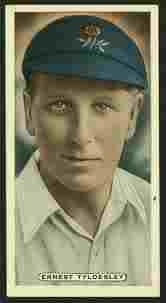Cheddleton born Sybil Leek, the self proclaimed “Queen of
the Witches” was a contentious figure and a colourful one as well: her
trademarks were a loose fitting cloak, hoods a pet jackdaw called Mr Hotfoot
Jackson and a snake named Sashima. Even Sybil’s birth date was the subject of
some argument. She gave the date as 22nd February 1922, while others
set the date at 5 years earlier. She also claimed to be the reincarnation of
the Burslem witch Molly Leigh. Sybil maintained many things in her life for
example that she had a friendship as a child with HG Wells and Lawrence of
Arabia.
She was interested in paganism from an early age and was on
good terms with Aleister Crowley- the self-proclaimed most evil man in the World
and a great fraud. There is a story that Crowley and Leek visited Burslem to
seek out Molly Leigh’s grave- a jackdaw perched on Leek’s shoulders. After the
war Leek went to the United States and became a media star appearing on TV
shows. She met and married a man named Brian.
Sybil was also involved with a number of American
celebrities including Ronald Reagan who
maintained an interest in clairvoyance throughout his life. She also had a
friendship with the writer Robert Bloch best known for his novel Psycho.
She believed that she could predict events and scored an
undoubted hit with a prediction she made in the early 70s.
"There is one menace to the career and potential of
George Wallace”- the candidate for the American presidency in 1972," Leek
asserted in her Astrological Guide to the Presidential Candidates.
"The nearer he gets to his goal, the
greater the danger of political assassination”.
Written in early 1971, these words were of more interest to
horoscope buffs than to political ones. But when Arthur Bremer, nearly 18
months later, fulfilled the prophecy and shot Wallace, crippling the Governor
of Alabama some political pundits decided to take a closer look at what is
written in the candidates' stars.
Not that Leek's
peeks into the future always proved entirely accurate. She once predicted, for
example, that in 1970 President Richard Nixon would become embroiled in a sex
scandal that would jeopardise his renomination by Republicans, nor did she
predict Watergate which really did bring Nixon down.




.png)




